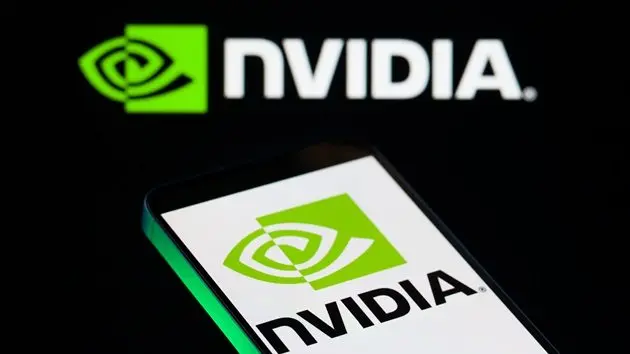
(NEW YORK) — Financial results to be released on Wednesday by chipmaking-giant Nvidia will be closely watched as a bellwether for the stock market and the overall economy, which have both come to rely on massive spending on artificial intelligence to propel continued growth.
The latest test for the world’s most valuable company arrives at a fraught moment for markets, which have fallen for four consecutive days over fears of an AI bubble. Nvidia, which makes many of the chips fueling AI products, has suffered a decline of more than 10% over the past two weeks.
As big-tech names spend hundreds of billions on chips and data centers necessary for the energy-intensive technology, the financial benefits remain uncertain. The earnings reported by Nvidia will gauge demand for a key building block of AI, showing whether appetite for the technology remains at a fever pitch.
The results hold major stakes for the U.S. economy, which has shown signs of strain in recent months as hiring has slowed and consumer sentiment has dampened.
The AI spending boom, a lone bright spot, added a 0.5 percentage point boost to annualized gross domestic product growth over the first half of 2025, accounting for about one-third of economic activity, Pantheon Macroeconomics found.
“There is one company in the world that is the foundation for the AI Revolution,” Dan Ives, a managing director of equity research at investment firm Wedbush, told ABC News in a statement, referring to Nvidia.
Fears of an AI bubble surfaced over the summer ahead of Nvidia’s previous earnings report, but the California-based company defied naysayers.
Nvidia recorded $46.7 billion in sales over three months ending in July, which exceeded analyst expectations of $46.2 billion. The jump in revenue marked 56% growth compared to the same quarter a year earlier.
The company boasts a market cap of $4.5 trillion, making it roughly equivalent to the GDP of Japan or Germany. The company has expanded at a breakneck pace since an AI craze set off by the release of OpenAI’s ChatGPT in 2022. The California-based company saw its stock price soar nearly 700% over the ensuing two years.
Alongside continued growth, the company is weathering new challenges. President Donald Trump barred the sale of chips to China earlier this year, before revoking the ban in July. A month later, Trump struck an agreement with Nvidia and its competitor Advanced Micro Devices (AMD) that allowed the companies to sell chips in China if they hand over 15% of revenue generated by the exports to the U.S.
Speaking at the White House in August, the president recounted the agreement.
“I said, ‘If I’m going to do that, I want you to pay us as a country something, because I’m giving you a release,'” Trump said.
Earnings released in August said Nvidia did not sell any of its H20 chips in China over the most recent quarter, but the firm did not mention any losses related to the policy. The H20 chip was specifically designed for sale to China.
In recent days, Nvidia announced a large investment in AI, signaling confidence in the outlook of the technology. Nvidia on Tuesday announced a multi-billion dollar partnership with two of its largest counterparts in AI: Microsoft and Anthropic.
Under the terms of the deal, Nvidia and Microsoft agreed to invest $15 billion in Anthropic, a top developer of AI models. Anthropic, meanwhile, vowed to purchase $30 billion of computing infrastructure operated by Microsoft Azure on Nvidia systems.
Copyright © 2025, ABC Audio. All rights reserved.





